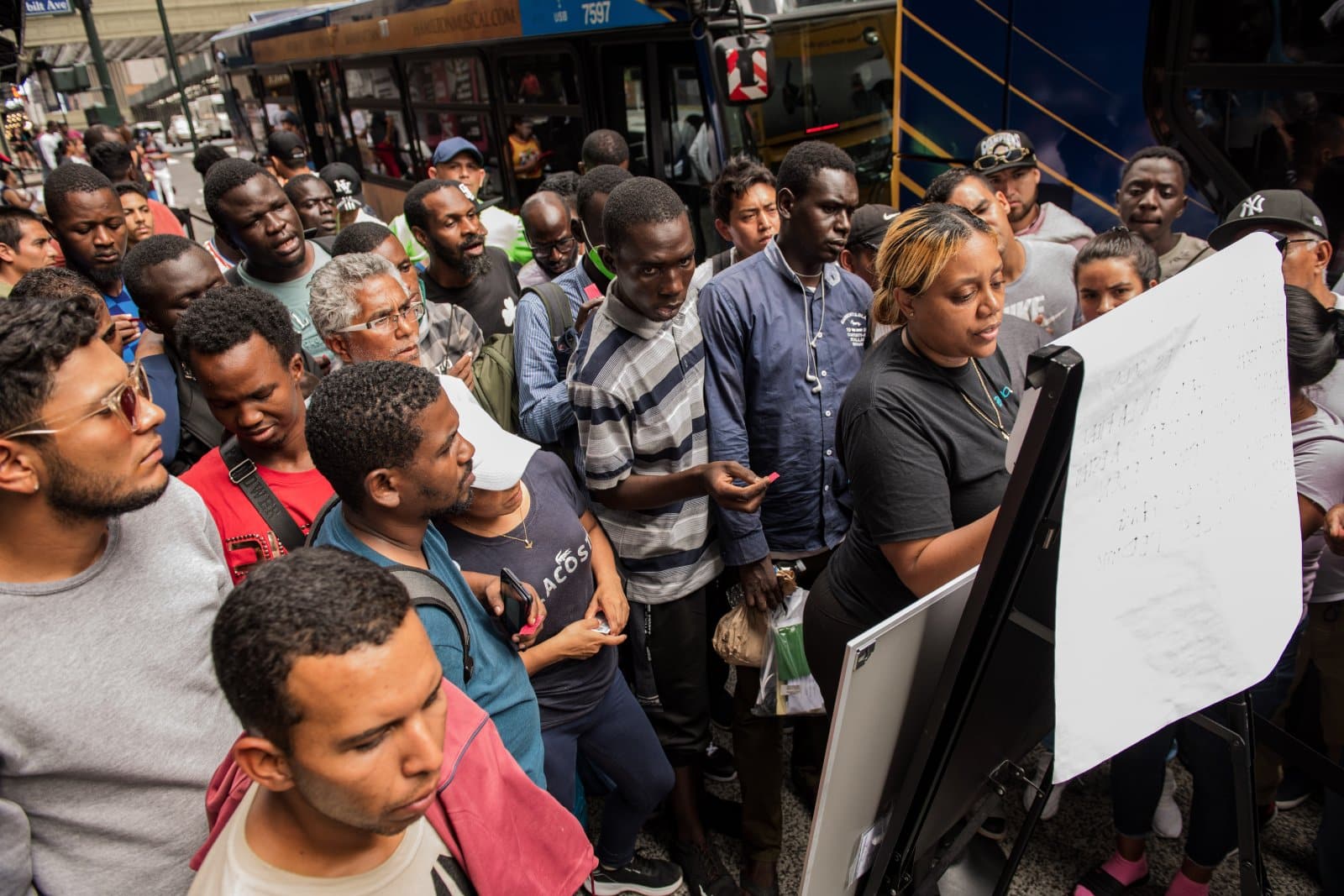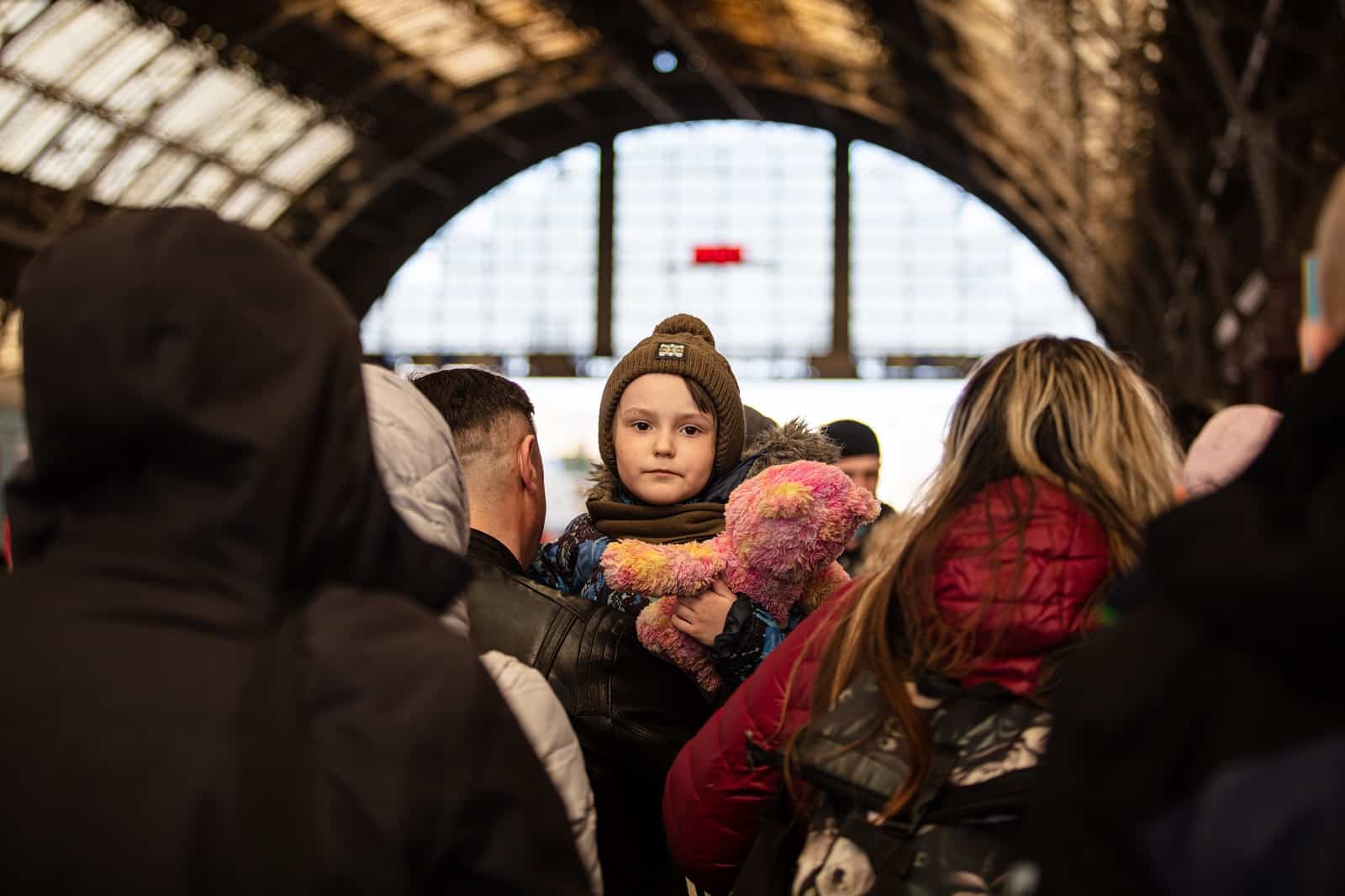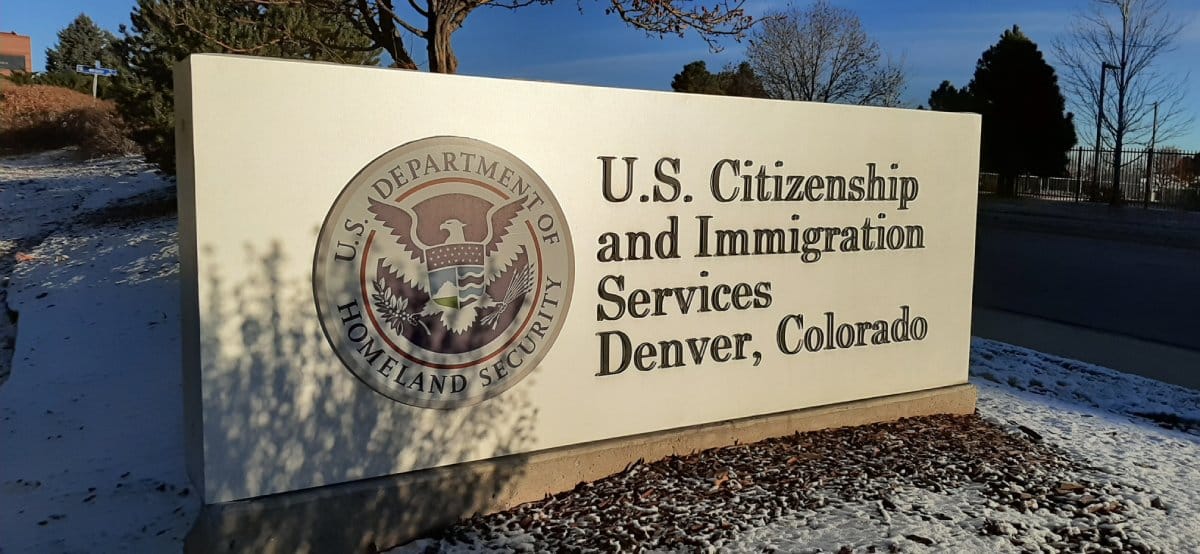Denver Mayor Mike Johnston announced a strategic shift in the city’s migrant aid plan, helping the migrants get stable and sustainable lives and work authorization, other than just finding temporary shelter. This comprehensive approach aims to integrate migrants into the community more effectively while addressing the fiscal impact and preparing for future needs.
Migrant Assistance Plan’s Strategic Shift

Mayor Mike Johnston announced Denver’s major shift in migrant assistance from temporary sheltered living towards stable, sustainable lives for their new migrants.
Work Authorization

The strategy now combines efforts to help migrants obtain work authorization, with at least 600 already assisted, and plans to help an additional 700 in the coming weeks.
This effort aims to help migrants integrate into the community more effectively.
Important Steps

Mayor Johnston said, “We knew that as a result of federal inaction on immigration and the resulting budget crisis, there were two important steps we needed to take. One was to adjust city budgets to support those needs. And the second was to reduce the overall cost of our migrant program.”
End of Migrant Shelters

In an effort to lower costs, the city of Denver plans to close four migrant shelters over the next month. It believes that this move will save, in a best-case scenario, up to $60 million for the city.
Replacing the Shelters

After those closures, the city will operate three hotel shelters and some space in congregate shelters for migrants, presumably adjusting the latter based on the needs of the “new flow of arrivals.”
Budgetary Worries and Cuts

The closures and adjusted strategies are made in light of the new budgetary strain. Denver was looking at an additional $180 million in expenses it had not yet budgeted for and was thus causing cuts in service within the DMV and Parks & Rec departments.
Further, Cuts

Denver has also cut budgets by $5 million and reduced $4.3 million of general fund allocation to the Parks and Recreation department, affecting the employment hours of on-call employees such as lifeguards and front desk workers.
A 42-Day Limit

The city has also reinstituted a length-of-stay policy that discharges families from shelters after a 42-day limit; this is intended to encourage families to transition into more permanent housing solutions.
Some 2,500 people have been successfully moved out of shelters over the past six weeks due to this policy.
Migrant Services and Fiscal Impact

So far, Denver has offered services to about 38,861 migrants, with these services costing the city almost $58 million, most of which has been deemed unreimbursable by the federal and state governments.
Providing Case Management

With these efforts, the city has been able to provide case management services for over 700 migrants and facilitate temporary housing transitions for about 500 individuals, half of whom were children.
Ping-Ponging Migrants

This news has fueled talks and even some tension with neighboring communities, particularly after the Aurora City Council rebuffed requests for aid with housing migrants, saying that it was concerned about “ping-ponging” migrants between cities.
Public and Political Speeches

Johnston said the current situation is unsustainable and called on the federal government to address more issues with immigration.
Dismissing Claims

Johnston had also dismissed some claims by the Aurora City Council members on how migrant transfers were being handled and had urged a joint and dignified manner of offering help to the migrants.
Preparing for Potential Surges

While the short-term plan outlines efforts to close shelters and integration, Denver is preparing infrastructure to manage its future potential surges of migrant arrival.
The post Denver Mayor Saves $60 Million with Migrant Work Authorization Focus first appeared on Swift Feed.
Featured Image Credit: Shutterstock / photo-denver.

